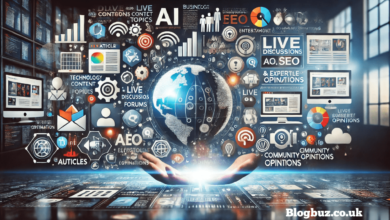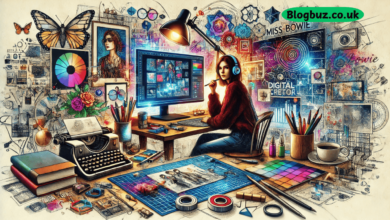Leveraging Artificial Intelligence for Hyper-Personalized B2B Digital Marketing in 2025

In today’s rapidly evolving digital landscape, artificial intelligence (AI) is no longer a futuristic concept—it’s at the forefront of marketing innovation. For B2B companies and digital agencies alike, harnessing AI to deliver hyper-personalized marketing strategies isn’t just an option; it’s a necessity for staying competitive in 2025. This article explores how AI is revolutionizing digital marketing, drives higher ROI, and how businesses can strike the perfect balance between automation and human creativity.
With AI adoption reaching a tipping point (over 80% of enterprises now use AI tools), businesses that fail to embrace hyper-personalization risk falling behind. At Royal Media Ltd., we’ve partnered with SaaS, fintech, and manufacturing leaders to prove that AI-driven strategies boost ROI by 35% while fostering deeper customer loyalty. Here’s how to future-proof your B2B marketing in the age of AI.
The AI Revolution in Digital Marketing: 2025 Changes Everything
AI integration is transforming digital marketing in unprecedented ways. Advanced machine learning, natural language processing, and generative AI are now key drivers behind many successful marketing campaigns. Marketers can leverage these technologies to analyze vast amounts of customer data in real time, extract actionable insights, and automate routine tasks.
According to recent insights from Google visionaries, AI-driven decisions now power a significant percentage of digital marketing strategies, enabling a level of personalization that was previously unattainable.
The convergence of advanced machine learning, stricter data privacy laws (e.g., GDPR, CCPA), and rising customer expectations has made 2025 the year of hyper-personalization or bust. Tools like Google’s Gemini and HubSpot’s AI Analytics now empower marketers to:
- Analyze 1st-party data (e.g., website behavior, email engagement) in real time.
- Predict customer needs with 90%+ accuracy using generative AI.
- Automate up to 70% of routine tasks, freeing teams for creative strategy.
As noted by Google’s Visionary Insights Hub, campaigns powered by AI decision-making now dominate top-performing B2B funnels.
Hyper-Personalization: The New Standard
The demand for personalized experiences has skyrocketed. Hyper-personalization goes beyond simply addressing customers by name; it uses AI to segment audiences based on behavior, preferences, and past interactions. By analyzing first-party data, companies can create customized content, tailor ad campaigns, and deliver targeted recommendations that resonate with individual prospects. This approach not only improves customer satisfaction but also drives higher conversion rates and long-term loyalty.
Gone are the days of basic demographic targeting. In 2025, winners like Royal Media’s clients use AI to:
- Segment audiences by pain points (e.g., “CFOs focused on cost reduction” vs. “CTOs prioritizing scalability”).
- Generate dynamic content (think whitepapers, emails, ads) tailored to each segment’s stage in the buyer’s journey.
- Predict churn risks and automatically trigger retention campaigns.
Case in Point: For a SaaS client, we deployed AI-powered lead scoring and personalized nurture streams, reducing customer acquisition costs by 40% in 6 months.
Key Benefits for B2B Marketers
- Enhanced Customer Engagement: Personalized content and targeted messaging cut through the noise, ensuring that your marketing efforts speak directly to your audience’s unique needs. With cookie deprecation finalizing in 2024, AI models trained on your CRM data will outperform competitors.
- Increased ROI: Data-driven insights help allocate budgets more effectively, reducing waste while boosting the impact of campaigns. Monitor “relationship metrics” like engagement depth and cross-departmental collaboration (e.g., sales + marketing alignment).
- Competitive Advantage: With competitors still adapting to AI, early adopters can secure a leading position in their industry.
Strategies for Implementing AI in B2B Digital Marketing
1. Invest in AI-Powered Tools and Platforms
Start by integrating AI tools that can handle tasks such as data analysis, customer segmentation, and content creation. Platforms like Google’s Gemini and other AI-driven analytics tools can help streamline your marketing operations and uncover trends that drive better decision-making.
2. Focus on Quality Data Collection
85% of B2B buyers only share data with brands they trust (Source: Forbes). Use zero-party data strategies (e.g., interactive quizzes, gated AI-driven assessments) to build transparency.
AI’s effectiveness depends on the quality of the data fed into it. Use robust data management platforms (DMPs) and customer relationship management (CRM) systems to gather accurate, real-time customer data. This data is critical for crafting personalized experiences and for the AI to learn and adapt over time.
3. Create Dynamic, Personalized Content
Utilize generative AI tools to produce dynamic content that can be tailored to different segments of your audience. Whether it’s blog posts, email campaigns, or social media updates, ensure that your content reflects the unique needs and interests of your customers.
4. Balance Automation with Human Creativity
While AI can automate many processes, the human touch remains essential for creativity and strategic oversight. Blend AI-driven insights with human expertise to develop campaigns that are both efficient and emotionally resonant. For example, use AI to generate initial content drafts, then refine them to maintain a distinctive brand voice.
Let AI handle A/B testing and analytics, but keep humans in charge of high-impact messaging. Example: AI drafts 10 LinkedIn ad variants in minutes; your team refines the top 3 to align with brand ethos.
5. Measure, Analyze, and Optimize
Establish key performance indicators (KPIs) such as conversion rates, customer engagement metrics, and ROI to track your campaigns’ success. Regularly analyze the performance data provided by AI tools to identify opportunities for improvement and adjust your strategies accordingly.
Best Practices and Future Outlook
As we move further into 2025, the synergy between AI and digital marketing will become even more critical. Here are some best practices:
- Ensure Compliance and Data Privacy: With increasing regulations like GDPR and CCPA, it’s vital to maintain strict data privacy standards while utilizing personalized marketing.
- Foster Continuous Learning: Digital marketing teams should regularly update their skills and stay informed about the latest AI advancements to keep up with market demands.
- Invest in Cross-Department Collaboration: Break down silos between marketing, IT, and sales to create a unified approach that leverages AI effectively.
Industry leaders predict that hyper-personalized, AI-driven marketing will not only improve customer experience but also redefine B2B relationships. By combining cutting-edge AI with thoughtful, human-driven strategies, companies can unlock new levels of growth and innovation in an increasingly competitive landscape.
Ready to Lead the 2025 AI Marketing Era?
Artificial intelligence is ushering in a new era of hyper-personalized digital marketing for B2B businesses. By embracing AI tools, investing in quality data, and maintaining a human touch in creative endeavors, companies can achieve unprecedented levels of engagement and ROI in 2025.
Now is the time to evolve your marketing strategy—integrate AI, refine your personalization efforts, and secure your competitive edge in the future of digital marketing.




